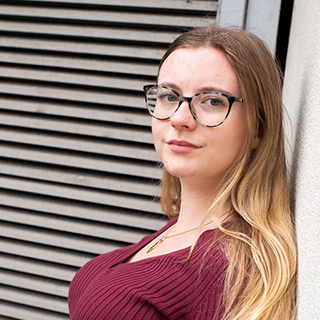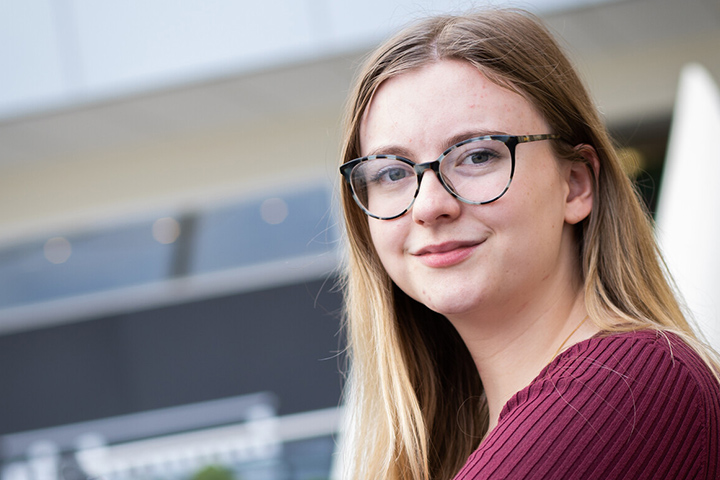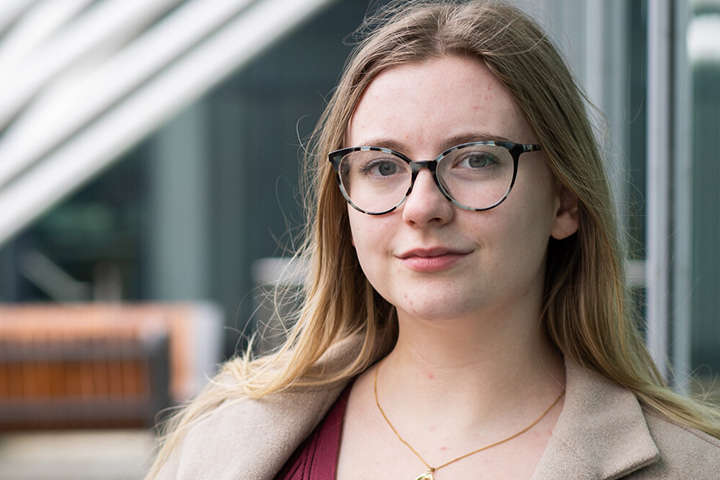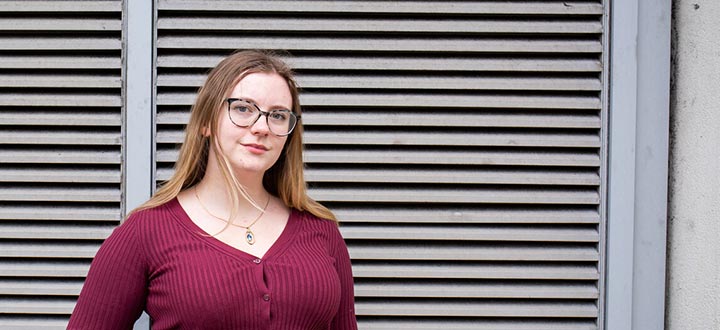
Freya
BSc (Hons) Healthcare Science
Freya was working as a support worker in the pathology department of her local hospital when she was encouraged to achieve a degree-level qualification so she could progress within the NHS.
With a long-term interest in medicine and biomedical science, her first thought was to secure a place on a biomedical science degree course. But, after speaking to colleagues, she decided to take the broader BSc (Hons) Healthcare Science route instead and joined the University of Bradford.
This is her story...
An alternative route with no delay
"I had been planning to apply for Biomedical Science."
"It seemed like the obvious route to become a biomedical scientist. I'd been a support worker in a lab since I was 17, so I knew I was interested in the field and that it could lead to a fulfilling career in medicine.
"But after some enlightening conversations with my NHS scientist colleagues at the hospital, they suggested healthcare science might be better for me as I could get a similar degree qualification, and my knowledge would be broader, all while training on the job and producing an evidence-based portfolio, within three years.
"It seemed a no-brainer to me. With the Biomedical Science degree you study for three years at university, try to get a training position, and do a portfolio after your degree. It takes longer to qualify."

A lot of people aren't aware that without the portfolio that you do on this course at Bradford, you can't practice as a registered biomedical scientist in the NHS.
Professional development and skills
"The assignments on this course count towards your professional portfolio."
"The portfolio is designed to make sure you meet the standards of proficiency in different areas of healthcare within pathology. It's built into the Healthcare Science course at Bradford from day one, and it's fun to work on because it's so varied.
"For example, I've produced around 15 pieces of work for my portfolio so far, from essays about patient safety and GDPR in the lab, to a case file on microbiology disease, tables of abbreviations used in laboratories, and a deep dive into the types of equipment we use and why.
"We're given direction by the teaching team, but we go our own way with it, so each portfolio is really individual to the student."
Training to succeed in the real world
"This course is not textbook."
"You'll get a lot of real-world experience on this course. My second and third year has been spent nearly entirely in labs, which I think is so important because you're preparing for real-world scenarios.
"In your final year, you choose a specialism to work on, such as haematology, and that can gear you up towards working in that specific discipline."

The lecturers are well-known for their expertise and are still very active in their field. It's one of the best things about this course. They test our learning constantly to the ever-changing nature of healthcare science.
Take your pick
"It's a lot of work, but it's worth it."
"A Healthcare Science degree just gives you more options, in my opinion. The big thing for me is the experience and the portfolio it gives you, as well as being able to explore lots of different healthcare disciplines rather than just one.
"You get transferable skills to be able to work and progress in multiple healthcare settings.
"A lot of people from the course go into NHS roles, but there are plenty of jobs in the private sector, and research too. Graduate employment statistics are particularly high on this course, which appealed to me.
"I have a friend who's been on a lab placement recently and she's already been offered a full-time position when she finishes uni. This happens quite a lot on this course which is great."

What's great is that whatever I choose to do, I know that with this degree, I'll have a solid grounding in biomedical science that will allow me to feel confident enough to go straight into a laboratory.
It's a good time to be a biomedical scientist
"When I graduate, I know I will have the qualifications to apply for NHS Band 5 biomedical scientist roles across the country."
"I'm not sure about my plan after university yet, I'm considering progressing to a Master's degree at Bradford or volunteering for a year.
"The amount of change going on at the moment is so exciting. I'd get bored in another job! You genuinely see something different every day so it's consistently interesting."
Interested in studying Healthcare Science?
Find out more about our course, entry requirements, and how to apply.
